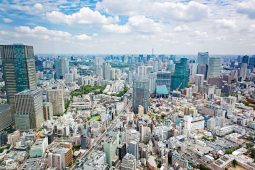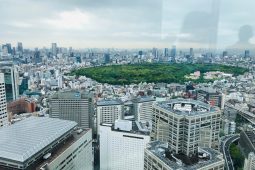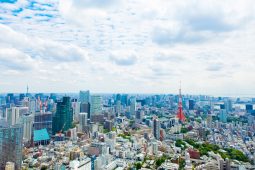In Japan, the Kanto region attracts the vast majority of people on account of the plentiful jobs and the convenience of living in one of the world’s most dynamic and modern cities. However, despite Tokyo’s huge size, newcomers may need to think small when choosing where to live.
Choosing where to live
While, the bulk of the metropolis’s population commute around 1 to 2 hours from their homes to their workplace, it’s entirely possible to live nearer — just don’t expect a spacious apartment. In central Tokyo, the rent for a very small one-room apartment can cost between 70,000 to 100,000 yen a month. However, in the greater Tokyo area you may obtain a larger place to live for a similar amount.
Moving-in deposits and fees
It has long been customary in Japan for new tenants to pay non-refundable key money called reikin to the landlord. This fee is in addition to the refundable shikikin deposit, which can be up to 3 month’s rent. Nowadays, key money is still common but there are also many apartments which no longer require this “thank you fee”. These apartments are typically administered by large, national letting agencies. The downside is that the letting agencies require further additional fees for acting as an intermediary between the tenant and the landlord.
Guarantor
Practically everyone needs a guarantor in order to rent an apartment. Japanese people can ask their parents or employer, but this is probably not an ideal situation for many. Therefore, for a one-time fee, letting agencies will hire the services of a guarantor company, if needed.
The following is a breakdown (from a 2-year contract) of the type of moving-in fees you are likely to pay for a spacious 2LDK apartment using a letting agent (such as Apaman-shop). The commuting distance is around 1 hour by train, 40 minutes by car, from central Tokyo.
In addition to the below fees, there may be optional services available such as an apartment “disinfection fee” which cost extra.
Example of moving-in fees for a 2LDK apartment on outskirts of Tokyo
| 敷金 shikikin | Deposit of 1 month’s rent | 75,000 yen |
| 礼金 reikin | Gratuity fee/key money | 0 |
| 賃料(日割り)chinryou | Rent; however much is left to pay that month from the date you move in. In this example, 30 days = 75,000 yen | |
| 共益費 kyoekihi | Monthly apartment building’s cleaning, lighting, etc. fee | 5,000 yen |
| 仲介手数料 chuukai tesuryo | Agency brokerage fee, half a month’s rent | 37,500 yen + consumption tax |
| 保険料 hoken-ryo | Insurance one-time fee; amount can vary | 22,000 yen |
| 保証会社加入料 hoshogaisha kanyuuryo | Guarantor company one-time fee, amount can vary | 40,000 yen |
| Total moving-in fees: | 273,700 yen (tax incl.) | |
Renewal
A typical lease contract, as in the one above, lasts for 2 years. Therefore, at the end of the contract, tenants usually need to pay a renewal fee in order to continue living in the apartment. This is usually around half a month’s rent paid by the contract renewal date in addition to that month’s rent. Annual contents insurance payments can also be up for renewal at this time.
Moving Out
Tenants are often charged a cleaning fee when they move out.
Utilities, taxes and other expenses
Gas, electricity will usually cost from 6,000 to 10,000 yen a month, depending on the season and how many people live in your apartment. Water fees are quite a bit less — from 3,000 to 6,000 every 2 to 3 months. Residence tax depends on your marital status and other factors, but ranges from 250,000 to 300,000 yen a year. Don’t forget to factor in private or national health insurance and the mandatory pension. Oh, let’s add 6,000 to 8,000 yen a month for wi-fi, and 5,000 yen to 15,000 yen (or more) a month for a mobile phone, and so on.
In addition to choosing a good location, knowing where to shop for the food and commodities you like will help you spend less in the city. Convenience stores are the most expensive, while wholesale-type supermarkets can save you money over the long term if you have space to store bulk buys. Cooking at home is generally cheaper overall than eating out, but that depends on how much you eat and what kind of food you like. Ready-made meals at supermarkets or independent convenience stores can be nutritious and good value too.
In summary, Tokyo is expensive, but you can have a decent quality of life on an average salary, if you either share a larger apartment or economize intelligently. Best of luck!
Read more about the topic here: Renting an apartment in Japan








